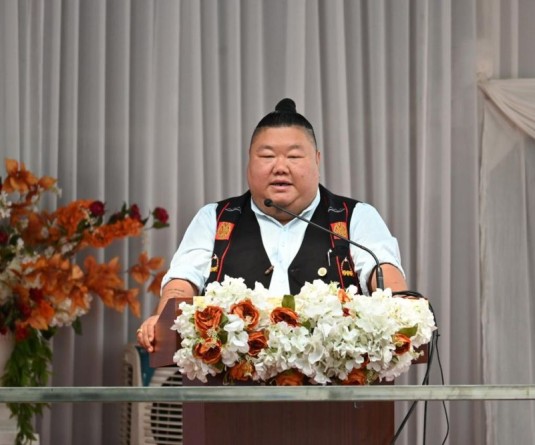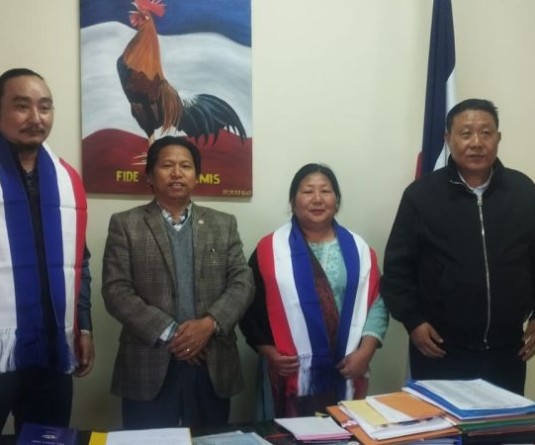Kohima College on September 20 hosted a one-day state-level seminar on “Role of Interdisciplinary Research in Higher Education Institutions to Achieve Sustainable Development Goals.”
.jpg)
KOHIMA, SEPTEMBER 20 (MExN): Kohima College on Saturday hosted a one-day state-level seminar on “Role of Interdisciplinary Research in Higher Education Institutions to Achieve Sustainable Development Goals” with participation from faculty, researchers and students of Kohima Science College, St Joseph’s College (Jakhama) and several other institutions across Nagaland.
The seminar, funded by the Department of Higher Education and organised by the Internal Quality Assurance Cell (IQAC) and Research & Development Cell (RDC) of Kohima College, opened with an invocation by T. Shancholo Khuvung and welcoming remarks by Dr Eunice Alinger, Associate Professor, History and Chairperson of RDC. Dr Alinger described the seminar as the culmination of an initiative to promote faculty development through research funding and presented tokens of appreciation to guests including Additional Director of Higher Education Dr K. Nishena Nekha, keynote speaker Dr I. Anungla Aier, former Director of Higher Education, and College Principal Dr Vitsosie Vupru.
In his welcome address, Dr Vupru said research was central to institutional growth and urged presenters to translate projects into publications and policy-relevant outputs. He also acknowledged the Department of Higher Education’s support in creating the platform.
Dr Nekha outlined the rationale of the grants, noting the transformative potential of faculty research and the Department’s aim to broaden participation. While acknowledging hurdles such as limited funding and competing duties, he said research was both essential and accessible. “Everybody can do something,” he remarked, calling for interdisciplinary teams to address issues such as rural–urban migration, biodiversity management and climate adaptation.
Keynote speaker Dr Aier said interdisciplinary research was necessary, not optional, to address multifaceted development challenges. Drawing from her experience in multi-disciplinary projects, she stressed problem-focused approaches, integration of knowledge, and the translation of research into implementable policy. She identified priority areas for Nagaland including urban planning, disaster resilience, ageing populations, and curriculum development that integrates traditional knowledge.
Technical Session I, chaired by Dr Medongunuo Ngone, featured applied science and modelling papers on thermoelectric materials, electrical resistivity surveys for Kohima town, mixed convection flow studies, and hydrologic basin modelling for Kohima district.
Technical Session II, chaired by Dr Prescilla Ezong, showcased research on museum digitisation, cricket rearing for livelihoods, sequencing of chickpea-nodulating rhizobia, traditional Angami architecture, and the impact of social media on student wellbeing and performance.
In her concluding remarks, Dr Kekhrieseno Christina, Head of Sociology and Director of RDC, stressed the importance of collaborative research. Thanking the Department of Higher Education, invited guests, faculty, researchers, rapporteurs and participants, she said interdisciplinary approaches were crucial to address complex problems from climate change and poverty to biodiversity and sustainability.
“We were enlightened by keynote speaker Dr Aier, who highlighted the complexity of human problems and the inadequacy of a singular discipline,” she said. “This state seminar is one step forward towards innovative and comprehensive understanding of socio-cultural, economic, physical and scientific challenges.”





